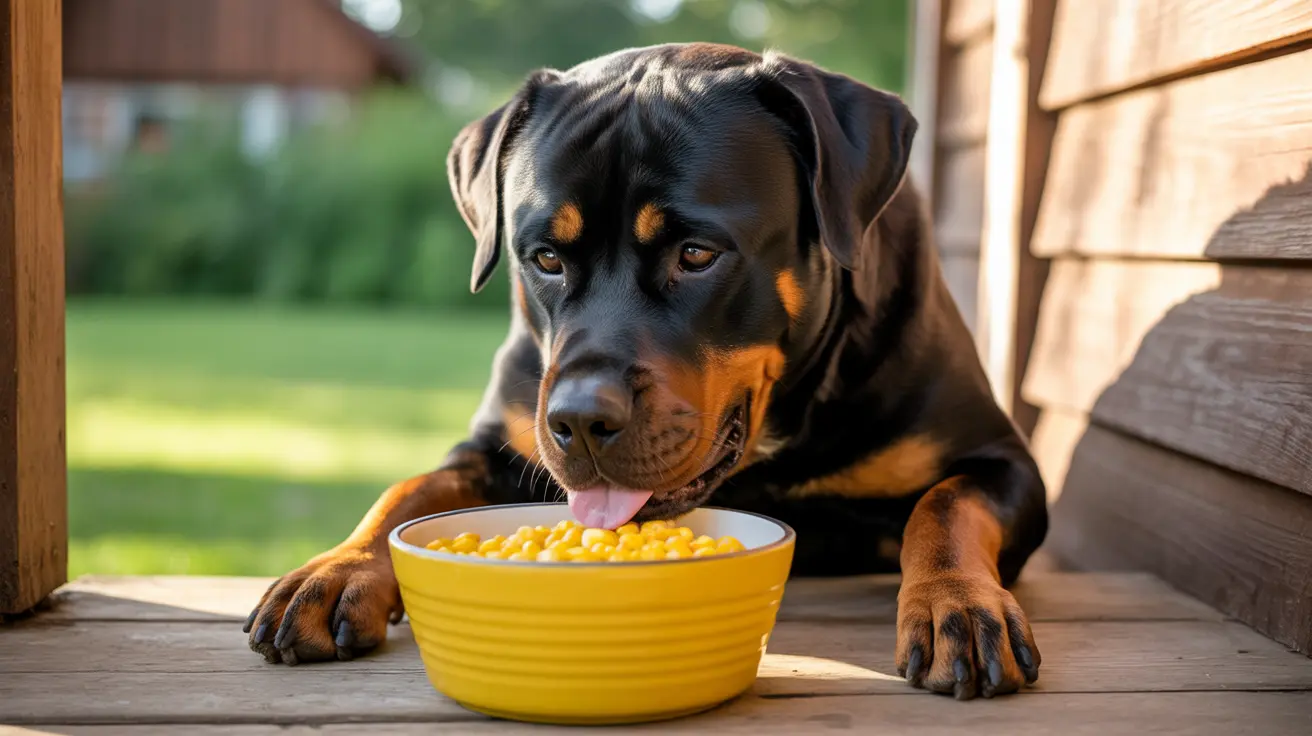Many pet owners wonder about the safety of feeding corn to their dogs, especially given its widespread use in commercial dog food. The good news is that corn can be a nutritious addition to your dog's diet when served properly. Let's explore the facts about corn consumption in dogs and learn how to feed it safely.
Understanding the role of corn in your dog's diet is crucial for making informed decisions about their nutrition. This comprehensive guide will cover everything from the nutritional benefits to potential risks, helping you make the best choices for your furry friend.
Nutritional Benefits of Corn for Dogs
Contrary to some misconceptions, corn offers several valuable nutrients for dogs. It serves as an excellent source of digestible carbohydrates, providing essential energy for your pet's daily activities. Corn contains important proteins, fiber, and vital nutrients that contribute to your dog's overall health.
Key nutritional benefits include:
- Essential fatty acids, particularly omega-6
- Antioxidants like beta-carotene and vitamin C
- Carotenoids for eye health (lutein and zeaxanthin)
- Digestible protein and carbohydrates
- Insoluble fiber for digestive health
Safe Ways to Serve Corn to Your Dog
While corn can be beneficial, how you serve it matters significantly. The most important rule is to never feed your dog corn on the cob, as this poses a serious choking and obstruction hazard.
Safe serving methods include:
- Removed kernels (cooked or raw)
- Plain, unseasoned popcorn (no butter or salt)
- Drained and rinsed canned corn (check for added ingredients)
- Small portions as occasional treats
Potential Risks and Safety Concerns
While corn itself isn't harmful to dogs, certain preparations and serving methods can pose risks. The biggest danger comes from corn cobs, which can cause life-threatening intestinal blockages requiring emergency surgery.
Watch out for these warning signs of corn-related issues:
- Excessive drooling
- Vomiting or diarrhea
- Lethargy or unusual behavior
- Difficulty passing stool
- Loss of appetite
Corn Allergies and Sensitivities
Despite common beliefs, corn allergies in dogs are relatively rare, affecting only about 4% of the canine population. However, some dogs may have sensitivity to corn or difficulty digesting it properly.
If you suspect your dog has a corn sensitivity, look for symptoms such as:
- Itching or skin irritation
- Gastrointestinal upset
- Ear infections
- Chronic inflammation
Frequently Asked Questions
Is corn bad for dogs or toxic if they eat it?
No, corn itself is not toxic to dogs. When properly prepared and served in moderation, corn can be a nutritious addition to your dog's diet, providing essential nutrients, fiber, and energy.
Can dogs eat corn on the cob or should it always be removed from the cob?
Corn should always be removed from the cob before feeding it to dogs. The cob poses a serious choking hazard and can cause life-threatening intestinal blockages if swallowed.
What are the health benefits and risks of feeding corn to dogs?
Benefits include protein, carbohydrates, essential fatty acids, and antioxidants. Risks mainly come from improper serving methods, particularly corn cobs, and potential digestive issues if fed in excess.
Are corn allergies common in dogs, and what are the symptoms to watch for?
Corn allergies are relatively rare, affecting only about 4% of dogs. Symptoms may include itching, gastrointestinal upset, and ear infections. Most dogs can safely consume corn without allergic reactions.
How should canned corn be prepared for dogs, and what ingredients should I avoid?
Canned corn should be thoroughly drained and rinsed to remove excess sodium. Avoid varieties with added salt, sugar, or artificial sweeteners, especially xylitol, which is toxic to dogs.
Conclusion
When it comes to feeding corn to dogs, moderation and proper preparation are key. While corn can provide valuable nutrients and energy, it's important to serve it safely and watch for any adverse reactions. Remember to always remove kernels from the cob and consult your veterinarian if you have specific concerns about including corn in your dog's diet.






